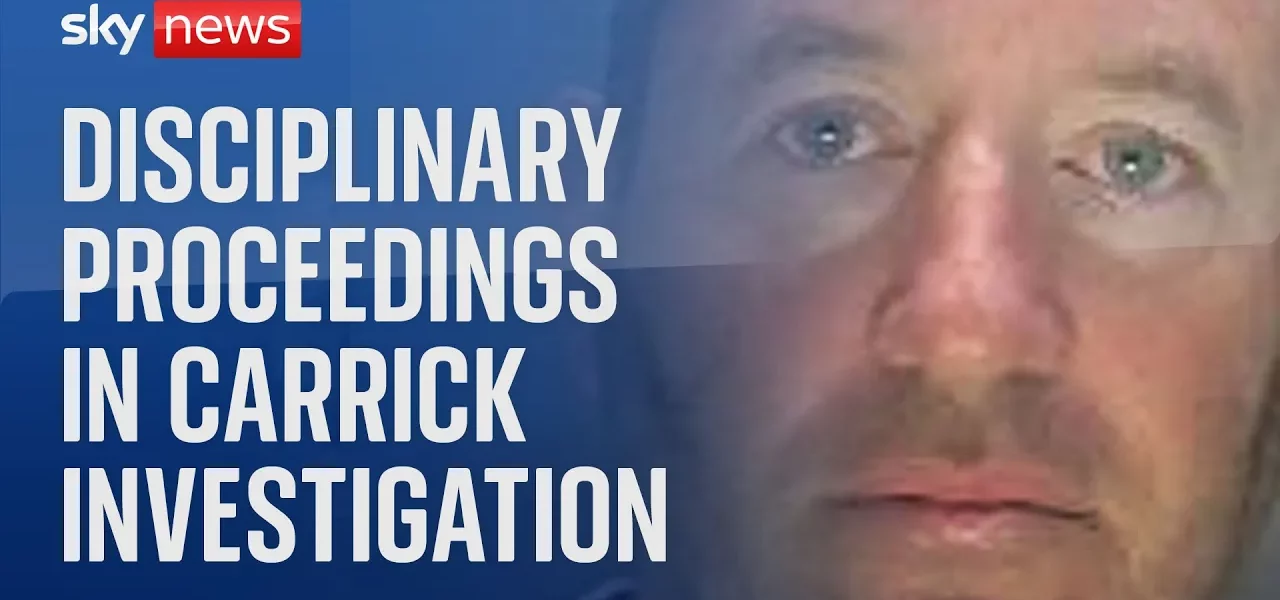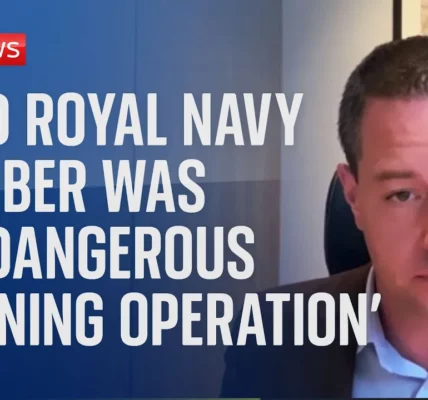Disciplinary Actions Against Police Officers in the David Carrick Case

This article delves into the serious allegations against David Carrick, the subsequent criminal charges he faced, and the disciplinary actions that police officers are now required to confront due to their mishandling of the case.
Introduction
The case of David Carrick has raised significant concerns about police oversight and accountability in the United Kingdom. Carrick, a former police officer, was convicted of numerous serious offenses, including multiple counts of rape. This article explores the timeline of events, the failures in the investigation, and the resulting disciplinary actions that four police officers and one staff member now face. The Independent Office for Police Conduct (IOPC) has highlighted systemic issues within the police force that allowed Carrick to remain employed despite numerous allegations against him.
The Serious Charges Against David Carrick
David Carrick’s criminal history is shocking and serves as a stark reminder of the need for rigorous internal investigations within law enforcement agencies. In total, Carrick was found guilty of:
- 49 criminal offenses
- 24 counts of rape
- Other serious sexual offenses
He admitted to all charges and was sentenced to a minimum of 30 years in prison. The implications of his actions extend beyond his individual crimes, raising questions about the systemic failures within the Metropolitan Police that allowed him to continue serving as an officer amidst serious allegations.
Timeline of Allegations and Investigations
Between 2002 and 2021, multiple allegations were made against Carrick, yet he managed to avoid any disciplinary proceedings. Here is a breakdown of significant events:
- 2002: Initial allegations were made, but investigations did not lead to formal charges.
- 2016: Further allegations arose, yet again, the police response was inadequate.
- 2019: More serious allegations emerged, but investigations fell short.
In each instance, internal investigations by the police were criticized for lacking thoroughness and oversight, leading to a failure to act on the serious nature of the allegations against Carrick.
IOPC Findings and Recommendations
The IOPC conducted a comprehensive review of how police handled the allegations against Carrick. Their findings revealed significant shortcomings in the investigative processes:
- Failure to properly explore and investigate the allegations.
- Inadequate oversight of misconduct investigations.
- Failure to initiate disciplinary proceedings despite serious criminal allegations.
As a result of these findings, the IOPC has mandated that the Metropolitan Police and the City of London Police conduct misconduct hearings for the officers involved. This includes:
Misconduct Hearings
Three police officers and one staff member will face misconduct meetings, while a detective sergeant will undergo a more serious misconduct hearing. The outcomes of these hearings will be crucial in determining accountability and the potential for further disciplinary actions.
Implications for Police Accountability
The Carrick case has profound implications for police accountability in the UK. The failures in handling his case highlight the necessity for reforms within law enforcement agencies to ensure that similar incidents do not occur in the future. The IOPC is expected to propose learning recommendations for the Metropolitan Police, aimed at improving internal processes and preventing the recurrence of such systemic failures.
The Path Forward
To address these issues effectively, the following measures are recommended:
- Enhanced training for officers on handling allegations of serious misconduct.
- Stricter oversight of investigations into police conduct.
- Implementation of transparent processes for reporting and investigating misconduct allegations.
Conclusion
The case of David Carrick serves as a critical juncture for the Metropolitan Police and the entire law enforcement community in the UK. The forthcoming misconduct hearings for the officers involved must be conducted with transparency and integrity to restore public trust. As the IOPC prepares to recommend changes, it is imperative for police agencies to embrace reform and prioritize accountability. For updates on this situation and related articles, visit our website for more information.
“`




